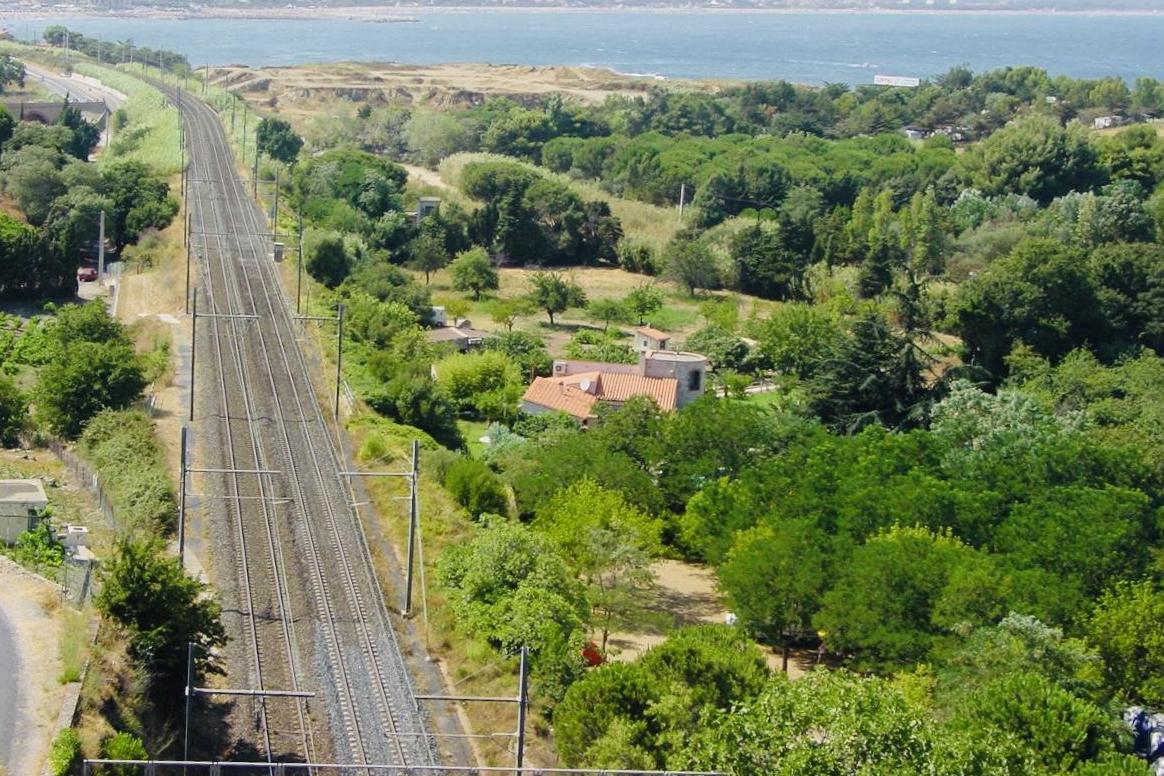Europe’s cheapest rail ticket: €1 for a four-hour, 188-mile trip from France to Spain
The deal works out at less than half a penny per mile

Your support helps us to tell the story
From reproductive rights to climate change to Big Tech, The Independent is on the ground when the story is developing. Whether it's investigating the financials of Elon Musk's pro-Trump PAC or producing our latest documentary, 'The A Word', which shines a light on the American women fighting for reproductive rights, we know how important it is to parse out the facts from the messaging.
At such a critical moment in US history, we need reporters on the ground. Your donation allows us to keep sending journalists to speak to both sides of the story.
The Independent is trusted by Americans across the entire political spectrum. And unlike many other quality news outlets, we choose not to lock Americans out of our reporting and analysis with paywalls. We believe quality journalism should be available to everyone, paid for by those who can afford it.
Your support makes all the difference.International rail passengers can buy almost 200 miles of rail travel from Avignon in southern France to Catalonia, for just €1 (90p).
The deal has been discovered by Nicky Gardner and Susanne Kries, the authors of Europe by Rail: The Definitive Guide.
Each day, three trains make the 303km (188-mile) journey from Avignon Centre station in the Provencal city to Portbou in Spain.
The standard one-way fare is €44.80. Yet there is a small quota of tickets available for only €1 – working out at less than 0.5p per mile.
“Book a couple of weeks in advance and the chances are that you will still find that one euro bargain available on one or more departures,” say the authors.
“It’s a beautiful run, slipping from the Rhone Valley along the coast of Languedoc towards the Pyrenees.”
The train pauses at Perpignan station, described by the surrealist Salvador Dali as “The Centre of the Universe”.
“South from Perpignan, the railway affords wonderful views of the Cote Vermeille. Collioure, on that stretch of coast, is still every bit as lovely as it was when Matisse and Picasso visited.
“Beyond Collioure, the railway runs by a dozen capes and bays to reach Portbou in Spain – which is a world apart from the mass tourism which defines most of the Costa Brava.”
The Europe by Rail team have tracked many good-value international rail fares over the years, including a €150 return ticket from the Slovakian capital, Bratislava, to Vladivostok in the Russian Far East via the Trans-Siberian Railway.
But on a per-mile basis, they say, that trip cost twice as much. Sadly, it is no longer available.
The €1 fare is reasonably common for rail journeys booked in advance for travel in the southwest of France.
The heartland of these bargain fares is around the city of Toulouse, but they are widely available for journeys to the Mediterranean coast and into the Pyrenees.
“It’s a condition that the journey must be completed on a direct train,” say the rail experts. “No change of trains is permitted.
“The route from Avignon to Portbou is the longest journey we have identified on which the €1 bargain fare is available.”
The fare can be purchased on many sales channels, for example through the French Railways’ UK sales operation, Rail Europe, from about three weeks before departure.
“You may need to try a couple of dates, but we find the bargain fare generally available for most travel days, though they do sell out quickly at weekends.”
The writers have researched a range of other outstanding international travel bargains on the railways of Europe. They say: “There are two communities in France where people can travel by train without any charge across the border into neighbouring Luxembourg.”
The Grand Duchy abolished all fares on public transport in February.
“We also know of curious cases where railway companies actually pay the passenger to cross a frontier,” they write.
“From our local station, which is called Berlin Lichterfelde Ost, the one-way fare to Tantow is €15.00. All trains on the line to Szczecin stop at Tantow, from where it’s just a few minutes over the border to the Polish port city of Szczecin.
“The one-way fare from Berlin Lichterfelde Ost to Szczecin is only €12.00. One has that nice feeling, as the train leaves Tantow en route to Poland, that the rail operator is actually paying us three euros for the courtesy of keeping them company all the way to Szczecin.”
They have also identified national initiatives where older travellers may travel fare-free.
“In Hungary and Slovakia, citizens of European Union countries who have reached retirement age can ride on many train services for free,” the authors say.
“In Ireland, there is entirely free travel for those aged 66 or over, but there the scheme is limited to permanent residents, of any nationality.”
Europe by Rail: The Definitive Guide is currently in its 16th edition.
Join our commenting forum
Join thought-provoking conversations, follow other Independent readers and see their replies
Comments